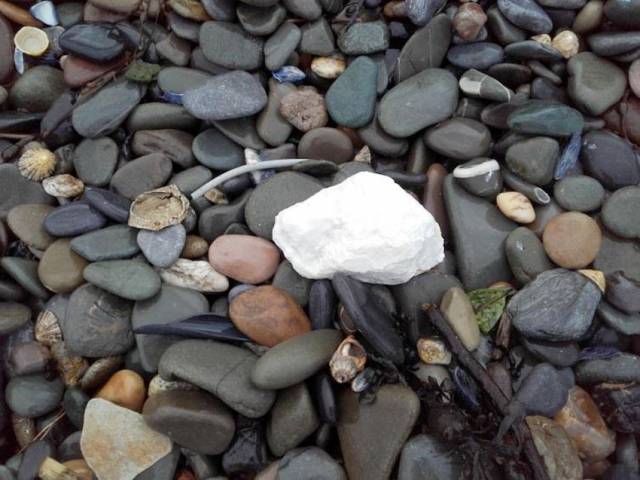#CoastalNotes - Fingal County Council has issued a warning for people to be vigilant for palm oil ‘fatbergs’ along the North Dublin coast as they can be particularly dangerous to dogs.
A number of fatty balls were found on Sunday (12 February) at Hoare’s Rock in Skerries, Co Dublin, and results from laboratory tests have showed that the substance was palm oil.
It’s thought that the oil was part of a consignment which came off a ship in the English Channel about 18 months ago and was washed ashore by the weekend storm.
The congealed substance has been turning up sporadically on beaches and coasts in England but this is the first time it has been recorded in Fingal.
Similar fatty deposits washed up on Mayo beaches last November, as previously reported on Afloat.ie.
“We believe the discovery of this material in Skerries on Sunday is an isolated incident as we have not had any other sightings along the Fingal coastline,” said a council spokesperson.
“The material is a solid white substance which is known as a ‘palm oil fatberg’ and they can range in size from being as  small as a golf ball to as big as a boulder.
“We are asking the public to be vigilant as this substance can be harmful to dogs.”
































































